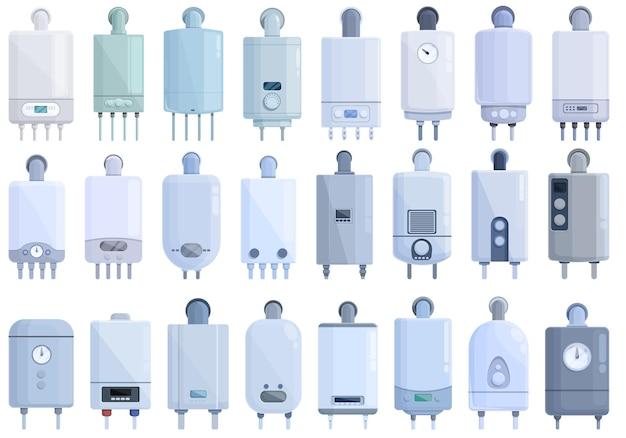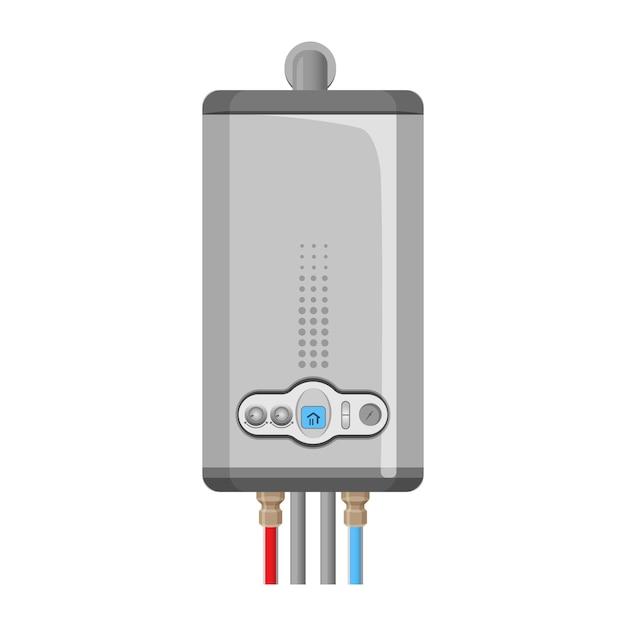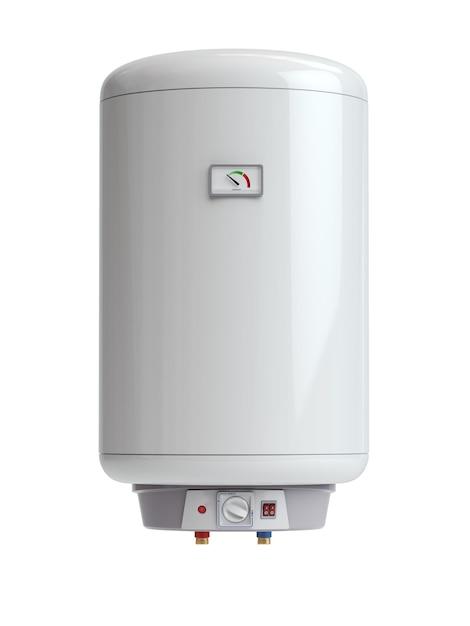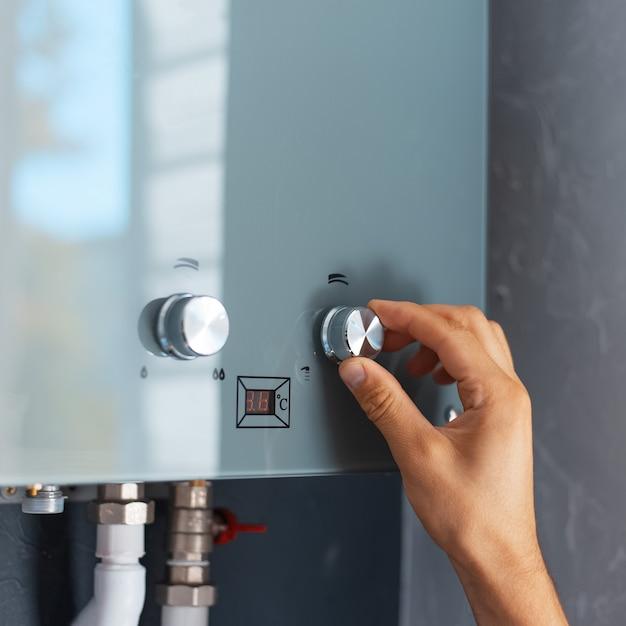Gas water heaters are a common choice for households looking for an efficient and reliable way to heat their water. However, many people are often left wondering just how much gas these water heaters consume. In this blog post, we will explore the factors that affect gas usage in water heaters and provide insights into questions such as the average cost of running a gas water heater and how much natural gas does a 40-gallon water heater use. So, if you’re curious about the gas consumption of your water heater, keep reading!
How Much Gas Does a Water Heater Use
The Mystery of Water Heater Consumption
Water heaters, those silent beasts hidden away in our basements, always seem to be consuming gas like it’s going out of style. But have you ever wondered just how much gas these sneaky contraptions actually use?
A Deep Dive into Gas Consumption
When it comes to determining the gas usage of your water heater, several factors come into play. The size of the heater, its efficiency, and even your household’s hot water usage habits can all influence the consumption. It’s like trying to predict how many cookies your cousin will eat at the annual family reunion – it takes some calculation mixed with a touch of clairvoyance.
Say Hello to the BTUs
To understand gas consumption, we need to acquaint ourselves with BTUs (British Thermal Units). BTUs are the units used to measure energy content, much like calories measure the energy content of your favorite snack. Water heaters typically range from about 30,000 to 50,000 BTUs, with higher BTU ratings indicating more powerful heaters.
Efficiency: The Holy Grail of Savings
While BTUs give us an idea of a water heater’s power, efficiency tells us how well it uses that power. An efficient water heater might be the equivalent of your grandma, making sure not a single cubic foot of gas goes to waste. So, while a less efficient heater may have a higher BTU rating, chances are it’ll also guzzle more gas.
Your Hot Water Habits
Now, let’s not underestimate the impact of your household’s hot water habits. If you’ve got a bunch of shower-hogging teenagers or family members who insist on marathon bubble baths, your water heater is going to work harder and consume more gas than if you were all Zen-like minimalists in your water usage.
Crunching the Numbers
So, how much gas does a typical water heater consume? On average, a gas water heater may use anywhere from 25 to 60 therms per month, with larger heaters trending towards the higher end of the spectrum. To put that into perspective, it’s like feeding your water heater a feast of gas goodness to keep it pumping out hot water.
Wrapping Up
Understanding the gas consumption of your water heater is like a secret code deciphered. Factors such as BTUs, efficiency, and your hot water habits all play a role in the never-ending quest for hot showers. So, the next time you feel the warmth of that steamy water, remember the silent gas guzzler hidden away in your basement—the true hero behind your cozy mornings and relaxing evenings.
Are Gas Water Heaters Expensive to Run
When it comes to running a gas water heater, it’s natural to wonder about the impact on your wallet. Let’s shed some light on the cost aspect of gas water heaters in this subsection.
Upfront Cost
Gas water heaters generally have a higher upfront cost compared to their electric counterparts. However, don’t let this discourage you! The long-term savings may offset the initial investment.
Gas Prices
The cost of natural gas, a common fuel for gas water heaters, can vary depending on your location. It’s worth researching the current gas prices in your area to get an accurate estimate of the ongoing fuel expenses.
Efficiency Matters
Gas water heaters come in different models, each with its own level of efficiency. Opting for a higher efficiency model may cost more initially, but it can save you money in the long run by reducing your monthly gas bills.
Energy Efficiency
Now that we’ve touched on the cost, let’s delve deeper into the energy efficiency aspect. This will help you understand how efficiently a gas water heater utilizes the gas it burns.
Energy Factor (EF)
The Energy Factor (EF) is a useful metric to gauge the efficiency of your gas water heater. It indicates how much hot water your unit produces per unit of gas consumed. A higher EF means better efficiency and lower operating costs.
Proper Insulation
Investing in proper insulation for your water heater and piping can make a significant difference in how efficiently your gas water heater operates. This ensures minimal heat loss, maximizing the hot water output while minimizing energy waste.
Factors Affecting Operational Costs
Various factors determine how much gas your water heater will consume and, subsequently, impact your monthly bills. Let’s explore some influential factors in this subsection.
Tank Size
The size of your gas water heater tank determines how much hot water it can store. Larger tanks may use slightly more gas to heat more water, so consider your household’s hot water needs when choosing the right tank size.
Frequency of Use
The more hot water you use, the more gas your water heater will consume. Factors like the number of people in your household, daily routines, and hot water demands for appliances will affect your gas usage.
Water Temperature
The higher you set the water temperature on your gas water heater, the more gas it will consume to heat the water to that desired temperature. Finding the right balance between comfort and energy efficiency is key.
Closing Thoughts
While gas water heaters may have higher upfront costs, opting for a more efficient model can lead to long-term savings. It’s essential to consider factors such as gas prices, insulation, and water usage patterns to weigh the overall costs. By understanding these aspects, you can make an informed decision that keeps both your budget and hot water needs in perfect harmony.
Average cost of electric water heater per month
When it comes to monthly expenses, your electric water heater plays a leading role. Let’s dive into the average cost of an electric water heater per month, and find out just how much it can drain your wallet.
Wattage matters
Going gaga for gallons
Before getting into the nitty-gritty details of cost, it’s important to understand how much energy your water heater consumes. Electric water heaters typically have a wattage rating of around 4500 watts. This wattage tells us the potential amount of energy it can consume in one hour.
Calculating kilowatt hours
To calculate the cost of using your electric water heater per month, we need to determine the number of kilowatt hours used. On average, a person takes a 10-minute shower using 25 gallons of water. Multiply that by the number of showers taken per day, and you’ll find out how many gallons of water are heated every month.
Crunching the numbers
Next, we need to consider the efficiency of the water heater. Most electric water heaters have an efficiency rating of around 90%. So, to calculate the kilowatt hours used, multiply the number of gallons heated per month by the wattage rating of the water heater and divide by the efficiency rating.
The cost of comfort
Electric bills made exciting
Now that we have the kilowatt hours, let’s find out the average cost of using an electric water heater per month. The cost will depend on your location and the electricity rate in your area. On average, the cost per kilowatt hour ranges from $0.10 to $0.20. Multiply the kilowatt hours used by the electricity rate, and you’ll have an estimate of the monthly cost.
Tips for cutting costs
Taming your electric beast
While it’s difficult to avoid using hot water altogether, there are a few tips and tricks to reduce your electric water heater costs. Consider insulating your water heater and pipes, as this will help retain heat and reduce heat loss. You can also adjust the temperature setting on your water heater to a lower but still comfortable level. Remember, every little adjustment can make a difference!
Timing is everything
Timing your water heater usage can also help cut costs. Use a timer or set your water heater on low during hours when you don’t typically need hot water, like when everyone is asleep or when you’re out of the house. This will help reduce unnecessary heating and save you some extra cash.
Now that you have a better understanding of the average cost of an electric water heater per month, it’s up to you to find ways to keep those costs under control. By implementing some simple strategies and being mindful of your usage, you can enjoy the comfort of hot water without breaking the bank.
How Much Natural Gas Does a 40-Gallon Water Heater Use
So, you’re curious about how much natural gas your 40-gallon water heater guzzles, huh? Well, you’ve come to the right place! Let’s dive into the mysterious world of gas consumption and uncover the truth behind this burning question.
The Magic Number: BTU
To understand your water heater’s gas usage, we need to talk about BTU, or British Thermal Units. Fancy, right? BTUs measure the amount of heat produced by natural gas when it’s burned. The more BTUs consumed, the more energy is needed to heat your water.
Size Matters: The 40-Gallon Warrior
Now, let’s focus on your water heater specifically. The typical 40-gallon water heater usually operates at around 40,000 BTUs per hour. This means that, within an hour of flaming gas glory, 40,000 BTUs are devoured to warm up 40 gallons of water. That’s enough heat to rival a sunbathing dragon!
Breaking It Down: The Math
So, we know the 40-gallon beast gobbles up 40,000 BTUs per hour. But what does that mean in terms of typical usage? Well, on average, a person uses around 20 gallons of water during a shower. With that in mind, your water heater would need 20,000 BTUs to heat up your delightful shower experience. It’s like having a fiery dragon chauffeur!
Time for Some Comparisons
To put gas consumption in perspective, let’s compare your mighty water heater to other gas-guzzling appliances. Did you know that an average gas stove burns between 7,000 and 12,000 BTUs per hour? By jove, that’s less than a third of what your 40-gallon warrior can handle! Your water heater reigns supreme in the energy-hungry realm.
Efficiency is the Name of the Game
While we’re on the topic, let’s touch on efficiency. Newer models of water heaters are more energy-efficient, meaning they can do the same job while using less gas. So, if you’re still rocking an older water heater, you might be missing out on some gas-saving opportunities. Consider upgrading your trusty dragon buddy!
Wrapping Up the Gas Guzzler
Now that we’ve unraveled the enigma of your water heater’s gas consumption, you can rest easy knowing that your 40-gallon warrior is a formidable force in the realm of gas usage. Whether you take delight in long, hot showers or prefer to conserve energy, understanding your water heater’s needs can empower you to make informed choices. So, next time you step into your steamy oasis, give a nod of appreciation to your fiery friend for its gas-powered warmth. Keep on heating, my friend!



